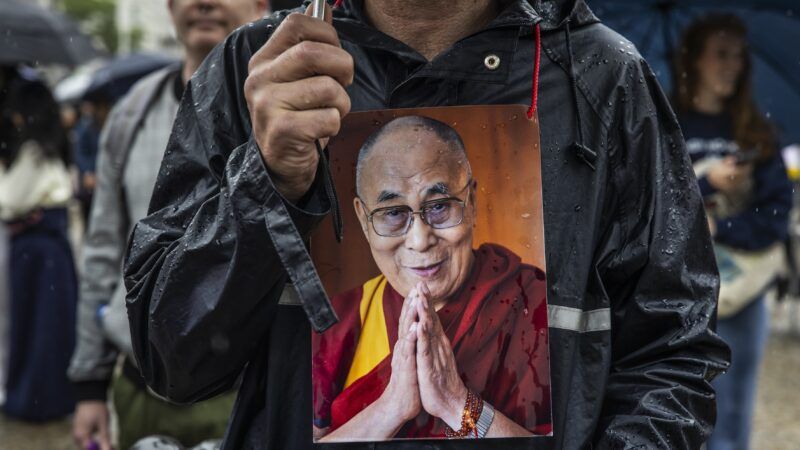Tibet Still Holds the Queen on the Geopolitical Chessboard
As the Dalai Lama turns 90, China prepares to name a rival successor. But the spiritual leader’s soft power has already thwarted Beijing’s efforts to erase Tibet’s identity.

On Sunday, thousands of people gathered in the Himalayan town of Dharamshala to celebrate the 90th birthday of the 14th Dalai Lama. World leaders, including Indian Prime Minister Narendra Modi and U.S. Secretary of State Marco Rubio, sent their well wishes and support to the Tibetan leader, raising geopolitical questions for the future. As Tibetans celebrate, they also remain wary that China will appoint a rival successor to the Dalai Lama to cement its control over Tibet. But the Dalai Lama's global influence has already tilted the chessboard. Tibetans, not Beijing, hold the queen.
The Nobel Peace Prize–winning Dalai Lama, who has become one of the world's most recognizable figures, is known for his quest for greater freedoms for Tibet under Beijing's rule. His ability to instill compassion and hope in millions of people has sown the seeds of a Tibetan identity that Beijing cannot eradicate. Because of his legacy and influence, the Dalai Lama has spawned a global Tibetan movement that outsmarts China and will ensure Tibet's cause endures regardless of who takes over his seat in the future.
China sent troops into Tibet in 1950, formally annexed it in 1951 through the 17-Point Agreement, and has ruled ever since. The Dalai Lama is viewed by China as a separatist and a threat to national unity, and has lived in exile since 1959. It was only after he escaped to India that he was able to formally repudiate the 17-Point Agreement. His global tours, books, and speeches have made him a symbol of resistance.
Now, at 90, his mortality looms large. China insists it would have the final say on who succeeds the Tibetan spiritual leader, as it did with the Panchen Lama—the spiritual authority second only to the Dalai Lama—in 1995, when the boy chosen by the Dalai Lama vanished and was replaced by a state-approved figure. This move could fracture Tibetan unity, with China's pick claiming legitimacy while the exiled community follows another. A divided Tibet could lose its voice, its culture diluted under Beijing's thumb.
Tibet's cause resonates in Washington, where lawmakers nudge China with human rights resolutions, and in India, where the Dalai Lama's exiled government operates. But Beijing's political and economic clout often mutes criticism. While nations such as Canada and Australia may criticize China's actions, they hardly ever risk trade wars over Tibet. From the hills of Nepal to the streets of Toronto, Tibetans living in exile face the challenge of preserving their identity in the absence of their homeland.
The problem isn't just China's control over Tibet's land, but its threat to Tibet's soul. If Beijing installs its own Dalai Lama, it could rewrite Tibetan Buddhism's future, turning a spiritual tradition into a state-managed relic.
However, the Dalai Lama has already outplayed Beijing by making Tibet's cause global. His soft power—rooted in universal values such as compassion and nonviolence—has seeded a Tibetan identity. Tibetan culture now thrives in exile communities. It's in the Dalai Lama's books on bookstore shelves, in mindfulness apps inspired by his teachings, and even in Hollywood films such as Seven Years in Tibet.
Tibetans should lean into digital platforms and share stories of their culture with platforms such as Tibetan cooking channels on YouTube or virtual monastery tours. The University of Oxford hosts Tibetan studies programs, training scholars who keep the culture alive. Others should follow suit. The Dalai Lama's interfaith dialogues, such as his 2023 meeting with Muslim leaders in India, demonstrate how Tibet's cause can be aligned with broader human rights movements, making it more challenging for Beijing to isolate.
The Dalai Lama's birthday is a reminder that Tibet's queen is still on the board. Soft power has built a global Tibetan identity that Beijing can't erase, no matter who it crowns next.


Show Comments (16)